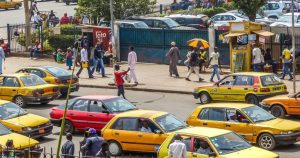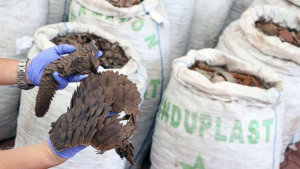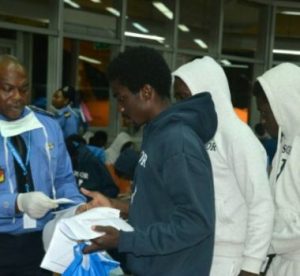About three hundred Cameroonians trapped in the Coronavirus-hit Wuhan city of China have written to Cameroon’s head of state Paul Biya begging for assistance to return home.
“Your Excellency, we are writing to you directly because the situation forces us to do so outside the established protocol. With shopping centres, markets and transportation at a standstill, we are anxious about the future of events.Wuhan has been in quarantine since January 23. Despite our many approaches to the Cameroonian embassy in Beijing, we remain without news” – the migrants wrote
They continued by expressing their frustration when they see citizens of other neighbouring countries receiving moral and physical support while their country remains silent.
“We refuse to believe that we have been abandoned, which is why we seize this opportunity to cry for help
We wish to suggest that we be provided with a hotline or emergency number for all Cameroonians in China via the Embassy
Above all Your Excellency, we pray to be provided with the most urgent necessities at this time of the crisis: Masks, disinfectants and food.
Most shops have been emptied and many of us have already exhausted our reserves and are completely stranded”
Likely, Chinese authorities have raised an alarm on Pavel Daryl, a Cameroonian student of Yangtze university infected with the virus at Jingzhou Chest Hospital.
He was infected on his return from a trip to Wuhan, the epicenter of the virus. The university authorities said Pavel was doing fine and responding to treatment.
While most countries are assisting or repatriating their nationals, Cameroonian authorities have stayed silent.
On January 25, travel restrictions were imposed on a further five cities in Hubei province, taking the overall number of people affected to 56 million.
Hong Kong meanwhile declared a virus emergency, cancelled Lunar New Year celebrations and restricted links to mainland China.
On January 26, the death toll rose to 56, with almost 2,000 cases confirmed as travel restrictions were increased and Hong Kong closed its Disneyland and Ocean Park theme parks.
New cases were confirmed in the US, Taiwan, Thailand, Japan and South Korea.
As of January 27, the death toll in China rose to 106, with 100 in Hubei province, authorities reported. Another 4,515 people in China were reported to be infected. There were 2,714 confirmed cases in Hubei province, up from 1,423 the day before.
On January 30, the WHO declared coronavirus a global emergency as the death toll in China jumped to 170, with 7,711 cases reported in the country, where the virus has now spread to each of the 31 provinces.
India and the Philippines confirmed their first cases of the virus, with one infected patient in each country.
On January 31, the number of confirmed cases in China jumped to 9,809. Russia, Spain, Sweden and the United Kingdom confirmed their first cases of the virus.
On February 1, the death toll in China rose to 259, with 11,791 confirmed infections in the country, according to new figures released by the Chinese health authority.
New cases were confirmed in Australia, Canada, Germany, Japan, Singapore, the US, the United Arab Emirates (UAE) and Vietnam.
On February 2, the first death outside of China was reported in the Philippines. The patient was a Chinese man from Wuhan.
The death toll in China rose to 304, with 14,380 infections reported.
Since 2017, we have staked our lives to provide tailor-made news reports to our readers from war zones and hot political rivalries in Cameroon - And we do so for FREE.
As a small online media now reaching over 100,000 monthly readers on all our platforms, we have to rely on hiring a small team to help keep you informed
The best way to support our online reporting is by considering a measly sum for our team on the ground as little as $1. Now you can make a donation to us below, it only takes one click...
[sdonations]1[/sdonations]























